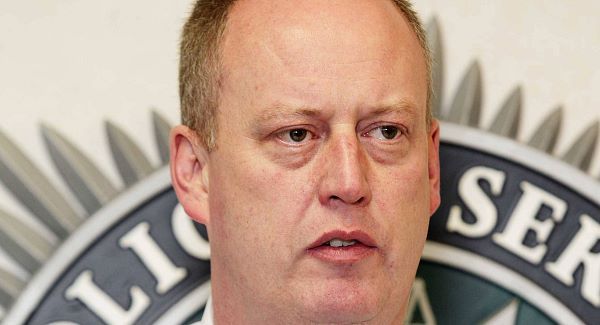Foreign Minister Charlie Flanagan has rejected claims from the North’s police chief that weaker immigration checks in the Republic of Ireland are providing a route for international criminals to enter the UK.
Mr Flanagan said George Hamilton’s comments were not well founded.
On Tuesday, Mr Hamilton told a Westminster committee that controls in the Republic of Ireland did not have the same “resource or focus” as those operating in the North.
The PSNI Chief Constable was being questioned by British MPs as part of an inquiry into the future of the Irish border post-Brexit.

When asked how international criminals were entering the UK and Ireland, he told the Northern Ireland Affairs Committee: “Access into the Republic of Ireland may not have the resource assigned to it or the immigration checks we would have in Northern Ireland or indeed more broadly into the United Kingdom.”
Mr Hamilton highlighted that 775 people had been detained at Northern Ireland ports in the last year.
He added: “I think it would be fair to say that immigration controls into the Republic of Ireland may not have the same resource or focus that we would be seeing in Northern Ireland.”
Asked about the PSNI commander’s comments on a visit to Belfast on Wednesday, Mr Flanagan said: “The remarks of the Chief Constable have got to be placed in the broader context of relations between the PSNI and An Garda Siochana being at the most positive and closest ever in terms of sharing of information and working together.
“Issues in terms of immigration are Dublin/London issues. I don’t believe his remarks are well founded.”
Mr Flanagan highlighted that the Government had committed additional resources to Gardaí to bolster co-operation on tackling cross-border crime.
In regard to the situation post-Brexit, the minister added: “A priority on the part of Irish government will be to ensure the maintenance of the current invisible border across a range of issues not only in respect of security and immigration but also in terms of business and commerce.
“This will be a priority of the Irish government in the context of the negotiations.”


